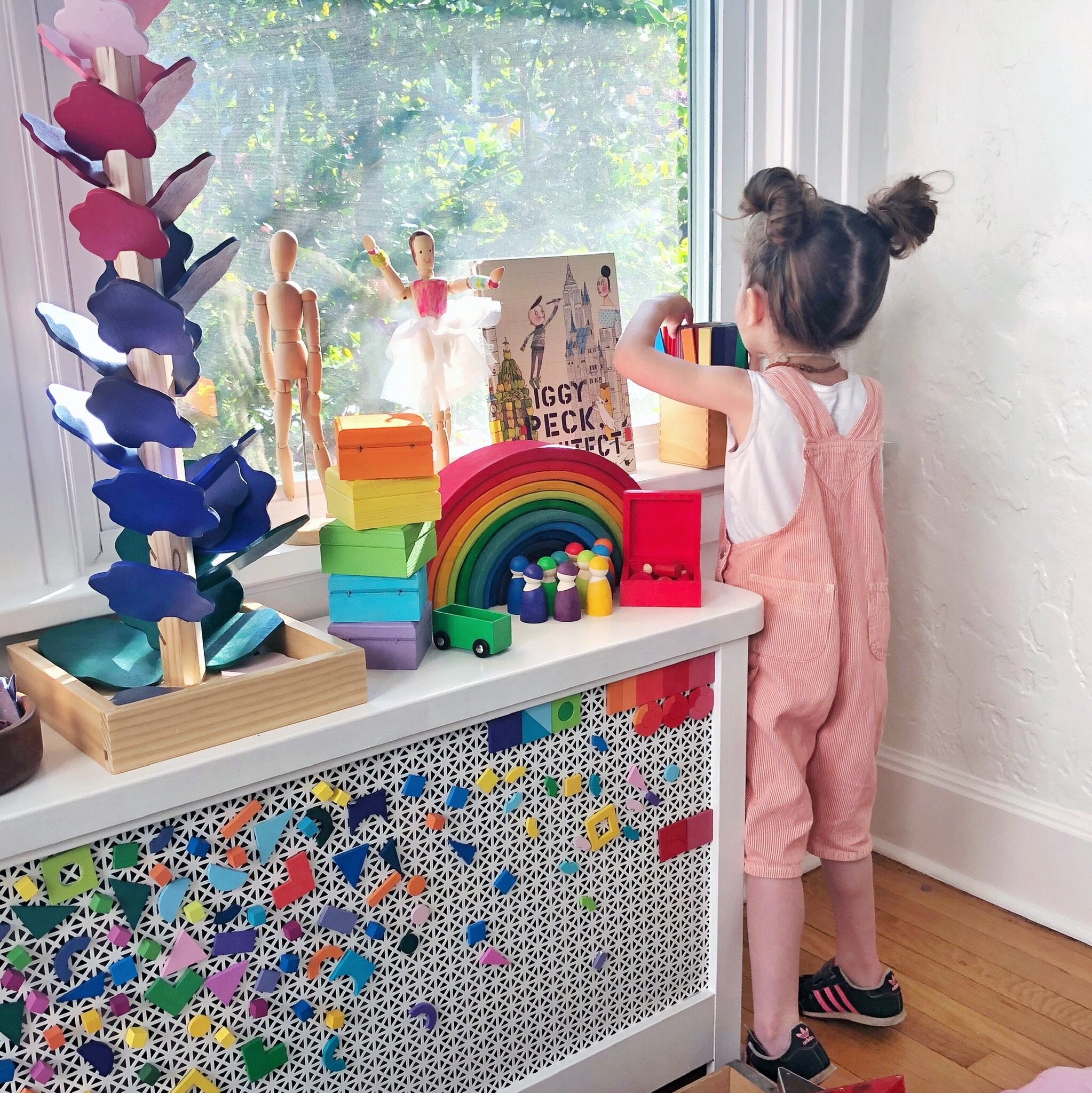How to Stick To Your Limit When Your Child Is Crying
/Setting limits is HARD. Setting limits when your child is melting down is even HARDER. Especially when their melting down presents itself as a full-blown tantrum in aisle five because they didn’t get the toy they wanted.
As a parent, I know how difficult it can be to set limits and then stick to those limits when your child is having a meltdown. And I know how it feels when these meltdowns happen in public… heat rising, pit in your stomach, EMBARRASSING.
But, here’s the thing. Meltdowns are not a sign of bad parenting. Compliant children are not a sign of good parenting. Meltdowns and tantrums are developmental milestones for your child, and they are still learning how to regulate their emotions when things don’t go their way.
This is completely normal and healthy. But, it is your job to set limits and hold boundaries - despite their protest.
Here are 4 steps to help you stay grounded and anchor you in the storm.
4 Steps to Stay Grounded When Setting Limits and Sticking to Them
1. Acknowledge without judgment
I know, empathizing with your child when they are melting down can be difficult. But it’s an important step. Let them know that you understand why they are upset. Acknowledge the hard.
“I can see how much you want that toy. It looks like so much fun! It’s okay to want things.”
2. Set a clear limit
Instead of telling your child that they can have the toy they want another day, that they can do some chores to earn the toy as a reward, or “maybe” they can have it, set a CLEAR limit that is easy to understand.
“I’m not going to buy it today. You wish I would, I know that.”
(Check out this blog for some more ideas of what to say when your child asks you to buy things.)
3. Support your limit
When you’re in the thick of a full-blown tantrum with your child, it can be easy to forget your limits and give in. The key to NOT doing this? Deciding early on what your limits are going to be in these situations. If you’ve set a boundary with yourself that you are not going to give in when your child is upset, it will be much easier to support these limits in the moment.
“You are disappointed. Even if you cry and yell, I am not going to change my mind.”
4. Connect
Saying no to your child when they really want something can bring up some BIG feelings for them. Instead of brushing these feelings aside, get down on their level and connect with them as best you can.
“It’s hard when grownups say no. It is okay to feel sad, disappointed, and mad.”
Later that day, when your child has calmed and had time to regulate their emotions, reflect on what happened earlier that day. Don’t use judgment or place any blame on their behavior, but instead use facts to tell a story to help them understand what they were feeling.
“You really wanted that set of legos at the store today. I told you no and you got mad and started yelling and kicking. You were so disappointed. I understand why you were upset. I’m glad we were able to work through it. I love you.”
Remember this:
It’s your job to set the limit, and it is your child’s job to test the limits. Will you get it right every single time? No. You will fall apart sometimes too.
But, with time and consistency, it will get easier for both of you!
I hope you enjoyed this blog! If you want to keep up with more Workspace for Children content, follow along on Instagram by clicking HERE.
SUBSCRIBE TO MY NEWSLETTER
WANT TO SEE MORE BLOGS LIKE THIS ONE? GREAT! CHECK OUT THE POSTS BELOW!
CHECK OUT OUR EBOOKS!
THE BIG KID PLAY PLAN
Are you ready to get your big kids (six through teen) back to play? 5 Basic Materials turned into 25 irresistible play prompts for your big kids. …Because play should be simple. Even when your littles are big.
$34
THE HITTING HANDBOOK
Get UNSTUCK. Stop waiting for your child to outgrow the hitting phase. Feel confident heading to the park or the playdate. This 5-step method teaches you how to use play to connect with your child and set clear and firm limits and boundaries around hitting at home and beyond. YOU can raise children who respect boundaries AND know how to set boundaries for themselves.
$34
















Rescuing them from discomfort also robs them of resilience.